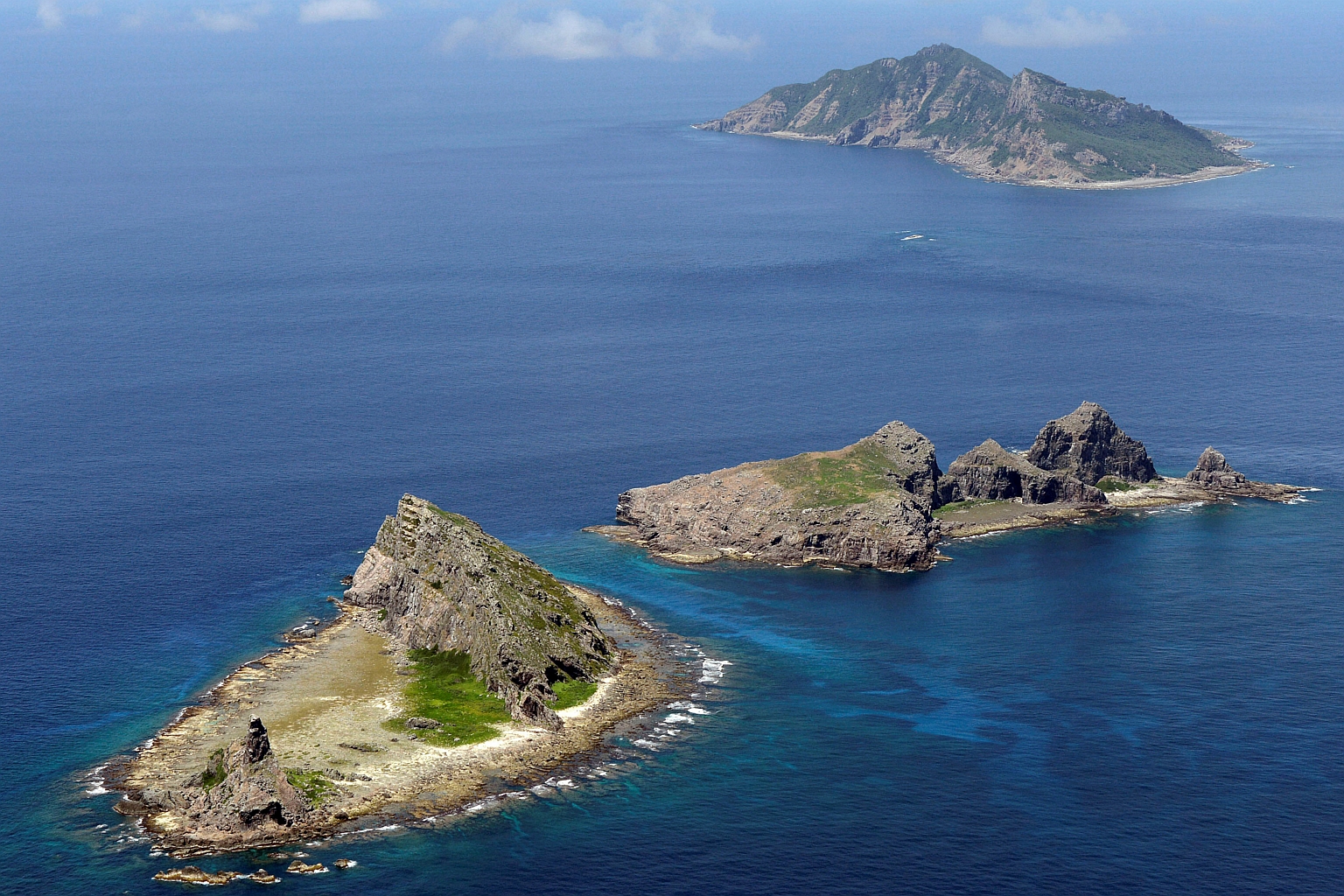China, Japan should restart hotline to avert crisis over East China Sea: International Crisis Group
Sign up now: Get insights on Asia's fast-moving developments

A group of inhabited islands known as Senkaku, or Diaoyu, that are at the centre of an ongoing dispute between China and Japan.
PHOTO: REUTERS
TOKYO - China and Japan should work towards restarting a hotline that is crucial to averting conflict as both countries ramp up their military might in the region, a global think-tank urged on Thursday (June 30).
This comes amid an ongoing dispute over uninhabited islets known as Diaoyu in Chinese and Senkaku in Japanese, which has been a sticking point to progress in talks over establishing a wider crisis management mechanism, the International Crisis Group (ICG) noted in a 21-page report.
The talks resumed in January last year but "behind the scenes (were) beginning to stall over the scope" of the mechanism by the time Chinese President Xi Jinping met Japanese Prime Minister Shinzo Abe three months later.
The ICG, in its report East China Sea: Preventing Clashes From Becoming Crises, exhorted China to delink sovereignty claims from the negotiations, and not use them as a tool to exert political pressure or extract concessions from Japan.
It also called on Tokyo not to conflate and "negatively publicise" Chinese legitimate right of passage through international waters near Japan to the Western Pacific, with its other actions that might have flouted international laws.
The hotline, which was launched in October 2000, was abandoned amid subsequent tensions arising from visits to the controversial war memorial Yasukuni Shrine by Japanese Prime Minister Junichiro Koizumi, who was in power from 2001 to 2006.
Working-level talks have been held on and off since 2007.
The ICG said restarting this hotline would be the first step towards formulating a wider crisis management protocol, which if implemented in phases could "sidestep" the sovereignty dispute.
A hotline "would also lay the foundation for regular defence contacts that over time could help stabilise bilateral relations and ensure continued communication between the militaries", said the report, based on interviews with Chinese and Japanese scholars, analysts and officials.
The hotline should be kept open at all times, and those manning it must have the authority to reach decision-makers and frontline personnel quickly in an emergency, and to make decisions that can contain potential crises.
The ICG said this step was "urgently needed". This is given the increasing unplanned contacts between Chinese and Japanese military aircraft and ships in the region, and as "both countries are in effect reorienting defence posture with the other in mind".
Each is attempting to administer its own air defence identification zone in the East China Sea, which have substantial areas of overlap.
And as China seeks to expand its maritime footprint further into the Western Pacific, Japan has been reacting by shoring up defences of its south-western island chain.
Meanwhile, Beijing is wary of inadvertently aiding Mr Abe's security reform agenda by continuing to pressure Tokyo, the ICG said.
Tokyo also maintains that there is no territorial dispute over the islands and as such is concerned about Beijing using the crisis management mechanism to justify its presence around the islands or ask Japan to reduce patrols.
The ICG noted: "Beijing would see inclusion of the territorial waters and airspace as Tokyo's tacit acceptance of a new status quo - joint control and management of the waters and airspace that would legitimise Chinese patrols and by extension admit a dispute.
"Aware of the implication, Japan is unwilling to compromise the issue," the report added.
But the report noted that fraught ties between China and Japan have been improving since Mr Xi and Mr Abe met in 2014, leading to a political detente, the ICG said.
The historical factor of Japanese wartime aggression - which China has used as ammunition to notch up anti-Japan rhetoric during tense times - has been played down as Mr Abe, too, tried to avoid controversy.
Among other things, he had included words such as "aggression" and "apology" in a speech to mark the anniversary of Japan's defeat.
The ICG said: "China and Japan need to seize the opportunity proffered by their current fragile reconciliation to establish crisis management ties."


